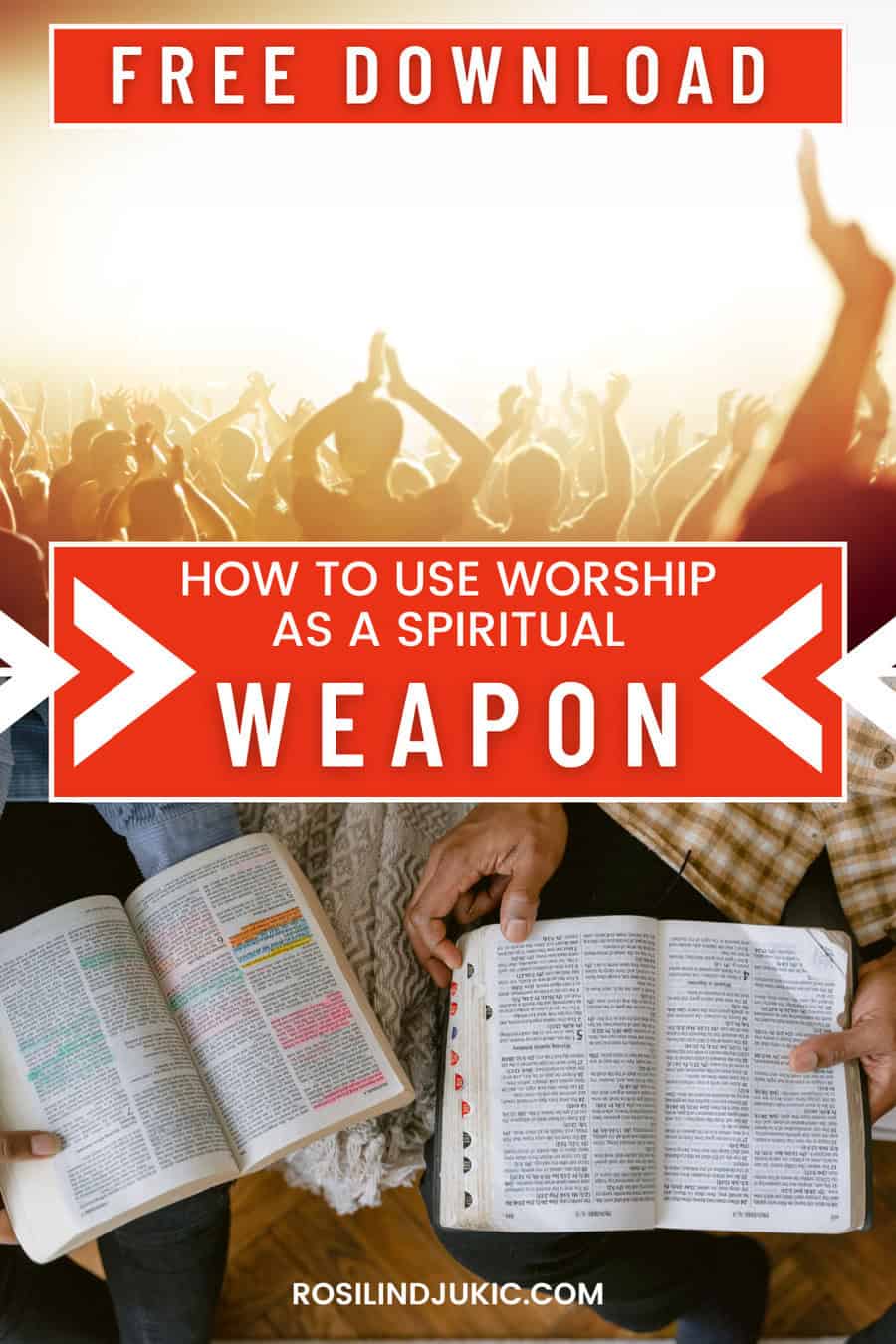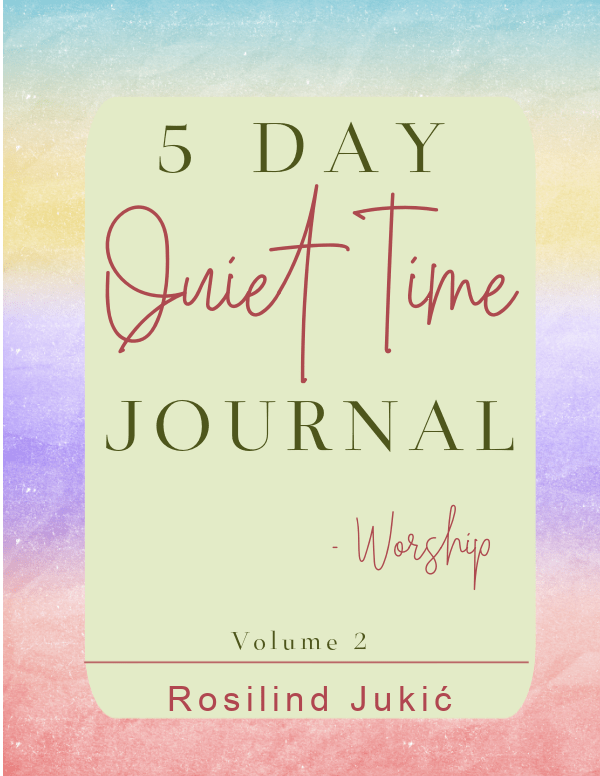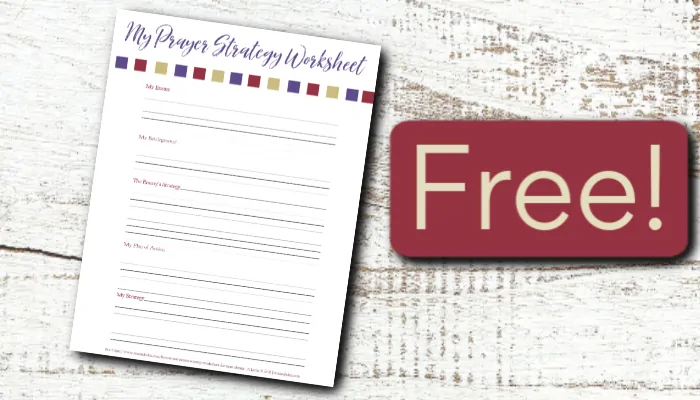How to Use Worship As a Spiritual Weapon – FREE DOWNLOAD
I hope you love the products and resources I recommend here at A Little R & R. Just so you know, it is possible that I get a commission and collect income from the links on this page. Click here for more info.
Ephesians 6 tells us about the armor of God and gives us two weapons: God’s Word and prayer.
But in Psalm 149, we discover another spiritual weapon: worship.

At first glance, it may seem that this chapter is divided into two sections: the section that talks about praise and the section that talks about spiritual warfare.
But today we’re going to discover how this whole chapter fits together to create a complete picture of worship as a spiritual weapon.
Psalm 149:1-5
When I read this Psalm this morning, I saw something I’ve never seen before.
All of the various words that describe acts of worship began to jump out at me.
Last week, for our Good Morning Girls’ reading in Psalm 140-145, we learned 9 ways we make worship all about God.
In that post, we look at nine very descriptive Hebrew words in Psalm 145 for worship.
In Psalm 149, we find even more words.
And what is fascinating is that while the words are translated the same in English, in Hebrew they have a completely different meaning from the words we read in Psalms 145!
And when we discover how they correlate with spiritual warfare, it will blow our minds!
How to Use Worship As a Spiritual Weapon
I do believe that many Christians know worship is a spiritual weapon, it’s just that they don’t know how to use it.
In his podcast 9 Hebrew Words for Worship and How We Use Them, Dr. Hackett points out how the Hebrew word “clap” in Psalm 47:1 means far more than just striking your hands together.
It is a weapon of warfare.
The Hebrew word taqa also means to thrust or drive a weapon, to give a blast or a blow.
The same word is used repeatedly in the Old Testament to describe thrusting the sword in battle and in the story of Jael, the wife of Heber, who drove a tent peg through Sisera’s temple.
So, we see clearly that it isn’t just the music, the singing, the songs, or the instruments that lead us to a place of spiritual warfare, it is the actions we take as the worshiper that weaponizes our worship against the enemy.
1. Praise
“Praise the Lord!” Halal
This is clearly a command. And if there was any doubt, there is an exclamation point at the end to drive the point home.
The Hebrew word halal means to boast, to rave, to be crazy or foolish.
It reminds us of the story of David dancing before the ark.
He had taken off the robes that signified he was king and wore only the short “ephod” or garment worn by priests.
His wife Michal was embarrassed by his behavior, saying that he was behaving like a common man.
His response to her was, “And I will be even more undignified than this…”
2. Sing
“Sing to the LORD a new song, and His praise in the assembly of saints.” Shiyr
When we looked at this word in Psalm 145, we saw that it also meant to shout.
But in Psalm 149, it very clearly means just to sing.
The act of putting words to melody and singing them. A singer.
3. Rejoice
“Let Israel rejoice in their Maker;” Samach
This word in Hebrew is very simple. It simply means to be joyful, to be glad.
4. Be joyful
“Let the children of Zion be joyful in their King.” Giyl
What I found fascinating was that the word “rejoice” and the words “be joyful” did not have the same meaning in Hebrew.
While “rejoice” simply means to be glad, the words “be joyful” go further than that and also mean “to spin around”.
It indicates a violent emotional outburst that causes you to spin in circles; to dance or leap with joy.
So, this is joy on steroids.
And what is even more fascinating, is how this ties in with spiritual warfare.
Because, when we think of spiritual warfare, we tend to think of a crushing situation that is negative and causing grief.
Certainly, the first thing that doesn’t come to mind is dancing with joy!
5. Dance
“Let them praise His name with the dance;” Machowl
This word is self-explanatory – it’s a dance. More specifically, a round dance that we often think of when we think of Jewish dancing.
Not the spontaneous dance of “be joyful”, but a more organized group dance.
6. Sing praises
“Let them sing praises to Him with the timbrel and harp.” Zamar
Yet another word for sing! And yet this word doesn’t just mean the act of singing but also describes playing an instrument.
To strike with the fingers, to pluck an instrument, to touch strings, to play accompanied by a singer.
7. Be joyful in glory
“Let the saints be joyful in glory;” Alaz
This Hebrew word means to “triumph” to jump for joy.
We get an image of guys at a ball game, jumping up and down as their team makes a winning goal or shot.
8. Sing aloud
“Let them sing aloud on their beds.” Ranan
This is the same word we see in Psalm 145, it doesn’t just mean to sing; but it also means to shout out, to cry out, to shout for joy.
I think it is very interesting that it specifically says “on their beds”.
So often, we’re able to successfully distract ourselves during the day with so much activity and busyness.
We don’t give ourselves a moment to feel the pressure, anxiety, or pain.
But, the moment we turn out the lights and lay in our beds in silence, suddenly it starts descending on us.
I don’t think most of us think of “shouting out for joy” when we lay in our beds.
Some dread that moment most, because it’s when the most intense, negative emotions swirl around inside, stealing yet another night’s sleep.
And so here we are: 8 very unique words in Hebrew to describe worship: ranging from singing and dancing to shouting and raving like a crazy person, to playing an instrument; twirling around violently and jumping for joy.
How does this become a spiritual weapon?
“Let the high praises of God be in their mouth,”
When we think of “high praises”, I think we often get the image of a higher realm or level of worship.
But really, what it means is just to lift God on high. To celebrate God.
It’s not very complicated. But, as Christians, we tend to complicate very simple matters.
Worship in spiritual warfare really isn’t that complicated.
But it does take discipline in rounding together all of our scattered, anxious thoughts, taking them captive (like you’d take your enemy captive!), and then intentionally elevating God above your problem.
You have the weapon of both personal and congregational praise and rejoicing coupled with the “two-edged” sword of the Spirit – which is the Word of God – and there is no weapon formed against you that can prosper!
“To execute vengeance on the nations, and punishments on the peoples; to bind their kings with chains, and their nobles with fetters of iron; to execute on them the written judgment—”
This is a powerful statement!
We have the power, through Jesus Christ and the Holy Spirit, bestowed upon us by God to carry out:
- His vengeance on the nations (literally heathen people)
- His punishment
- To bind – to take prisoner, to harness – the kings and henchmen of the heathen people
- To carry out God’s written ordinances
We have the power and authority to bind the enemy and all the powers of darkness and carry out God’s the authority of God’s Word!
We see this in the New Testament as well.
“And I will give you the keys of the kingdom of heaven, and whatever you bind on earth will be bound in heaven, and whatever you loose on earth will be loosed in heaven” Matthew 16:19
And in case you wonder if this is really talking about you, Psalm 149 concludes with:
“This honor have all His saints.”
So how do we do this?
Meditation, or preoccupation, with our problems, negative circumstances, hurts and offenses and worries and anxieties is literally worshiping them.
It is elevating them higher than God.
It is placing them on the throne of our hearts.
It is giving them a place of authority in our lives that was meant only for God.
The first battle we have to wage is dethroning our problems…our anxieties, our worries, our hurts, and giving that authority back to Almighty God.
We do this by taking our thoughts captive to the obedience of Jesus Christ; making these former idols come into His submission so that they become His captives.
Then, as our focus shifts from these former idols to Almighty God and His ultimate supremacy, we begin to engage in active worship.
Not just passive listening to worship or singing apathetically…
But purposeful, active worship:
- Singing out
- Clapping your hands
- Dancing
- Leaping and twirling
- Shouting out God’s praises
- Declaring out loud who He is
- Foolishly boasting about God
And while you may think this sounds utterly crazy, there is no denying that this is what this Psalm is not just talking about, but commanding us to do!
Worship is a powerful weapon of spiritual warfare that defeats the enemy and completely nullifies His plan of destruction for our lives.
It binds him up and renders him powerless over us!
Dear sister, you do not have to remain under the burden of your sorrow, brokenness, anxiety, or depression one day longer.
Clearly, throughout God’s Word, we see a pattern of victory for God’s people!
He never intended for His people to live under the oppression of the enemy; but in victory over the enemy.
This doesn’t mean we won’t face battles in our lives — and maybe even long, intense battles.
But the end should always be victory.
He has given you spiritual weaponry: His Word, prayer, and worship. These are mighty weapons for the pulling down of strongholds.
Victory is guaranteed to you.
All you need to do is begin taking every thought captive, rise up in your authority as a saint of God, and begin driving back your enemy until you win the battle!
Get these two 5-Day Quiet Time Journals for Worship when you type your email below!
Get instant access to over 100 FREE Printables today without ever having to enter your email in again! Become a member of my Printable Library on Buy Me a Coffee today!









